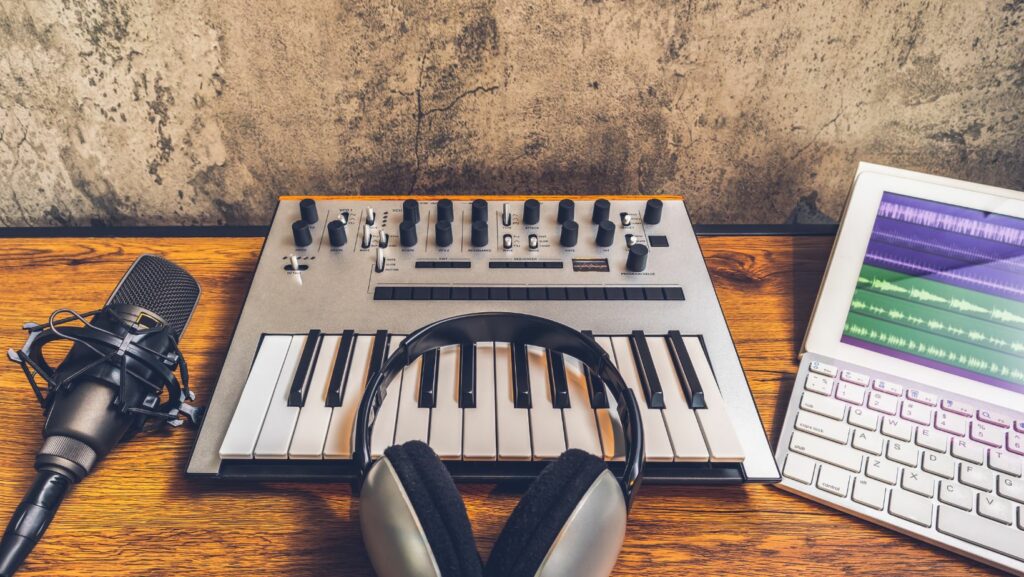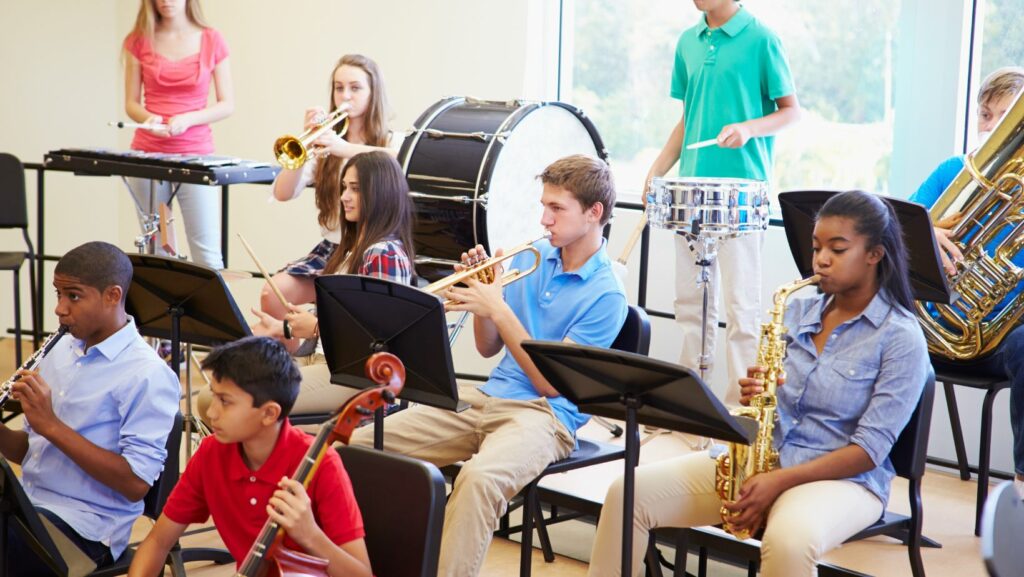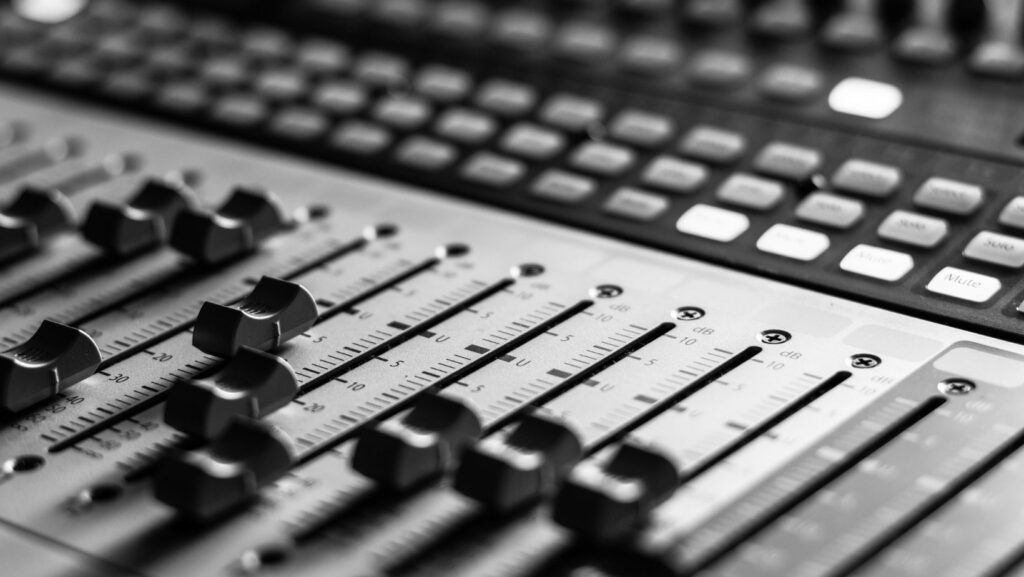Diving into the world of music production can seem daunting. With a myriad of software, hardware, and techniques to master, it’s easy to feel overwhelmed. But don’t worry, this article is your ticket to understanding the basics and launching your journey as a music producer.
How To Get Into Music Production
Diving into music production represents an adventurous journey. While this voyage contains many unknowns, clarity and understanding can ease the path for passionate beginners. Harnessing a basic grasp of the concept is crucial before one embarks. Likewise, understanding key skills improves the prospect of success. This section, therefore, provides a comprehensive outline touching on ‘what is music production’ and the necessary skills for music producers.
What Is Music Production?
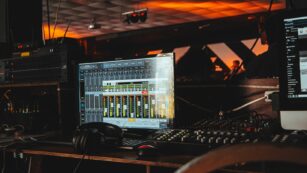 Music production is akin to assembling a jigsaw puzzle. It connects individual pieces, such as melodies, rhythms, and harmonies, into a cohesive whole. This process involves a series of steps, starting from the inception of a song idea to the final mixdown. Essential stages include track laying, mixing, and mastering. Each stage requires intuition, knowledge, and critical listening. However, it’s not only about the technical aspects. The heart of music production lies in the art of conveying emotions through sound.
Music production is akin to assembling a jigsaw puzzle. It connects individual pieces, such as melodies, rhythms, and harmonies, into a cohesive whole. This process involves a series of steps, starting from the inception of a song idea to the final mixdown. Essential stages include track laying, mixing, and mastering. Each stage requires intuition, knowledge, and critical listening. However, it’s not only about the technical aspects. The heart of music production lies in the art of conveying emotions through sound.
A music producer’s role can vary widely. He may gather musical ideas for the project, collaborate with the artists to select cover tunes or original songs, and work with the artists to improve their songs, lyrics or arrangement. Needless to say, music production is a complex craft, necessitating both technical acumen and creative prowess.
Key Skills Needed for Music Producers
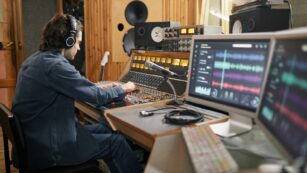 Acquiring the role of a music producer involves the development of distinct skills. These can broadly be divided into two categories: technical skills, related to handling hardware and software, and soft skills, associated with communication and creativity.
Acquiring the role of a music producer involves the development of distinct skills. These can broadly be divided into two categories: technical skills, related to handling hardware and software, and soft skills, associated with communication and creativity.
- Technical Skills: Music production calls for proficiency in managing music software, also known as Digital Audio Workstations (DAWs). Familiarity with mixers, synthesizers, and other studio equipment is also needed. Lastly, understanding music theory facilitates the composing and arranging processes.
- Soft Skills: Effective communication aids in conveying ideas clearly, especially when working with other musicians or industry professionals. Creativity spawns innovative ideas and drives the evolution of music. Patience is equally vital, as good music requires ample time to create and perfect.
Essential Equipment for Starting Out
Stepping into the world of music production entails having the right tools for the job. The essential equipment for anyone starting out in music production includes computers, Digital Audio Workshops (DAWs), microphones, and audio interfaces. These tools work cohesively, helping the producer manifest their vision into a tangible auditory experience.
Computers and DAWs
Computers form the heart of any music production operation. High-performance machines with decent processing power, ample storage, and speed are preferred. DAWs, on the other hand, constitute the brain of the operation. These software platforms – such as Ableton Live, Logic Pro, or Pro Tools – enable the recording, editing, and mixing of music tracks. From providing an array of virtual instruments to presenting an extensive platform for sound engineering, DAWs prove indispensable in the art of music production.
Microphones and Audio Interfaces
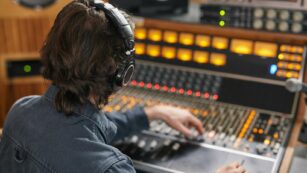 Microphones play a pivotal role in capturing and transforming sounds into digital signals. With myriad options on the market, from dynamic microphones best suited for live performances to condenser microphones ideal for studio recordings, it’s important to choose one that aligns with the producer’s needs.
Microphones play a pivotal role in capturing and transforming sounds into digital signals. With myriad options on the market, from dynamic microphones best suited for live performances to condenser microphones ideal for studio recordings, it’s important to choose one that aligns with the producer’s needs.
On the other hand, audio interfaces act as the bridge between microphones or instruments and the computer. They convert analog signals into digital ones and vice versa, offering a reliable connection between the audio source and your DAW.
Learning Music Theory and Composition
Getting into music production requires a broad understanding of music theory and composition. This ensures a solid foundation for the individual to manipulate sounds and create evocative music. Music theory encompasses the entire language of music, from scales and chords to harmonic progressions and melody lines, pivotal in making music. On the other hand, composition provides the principles to structure sounds into a comprehensive piece.
Essentially, someone keen on learning how to get into music production must grapple with these musical elements. Given the expansive nature of music theory, it’s best to approach systematically.

